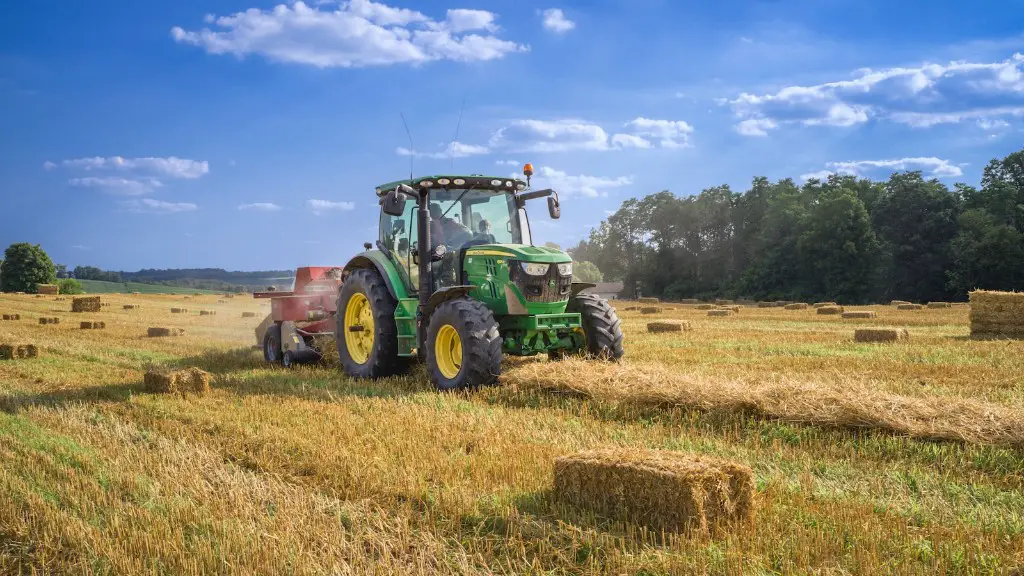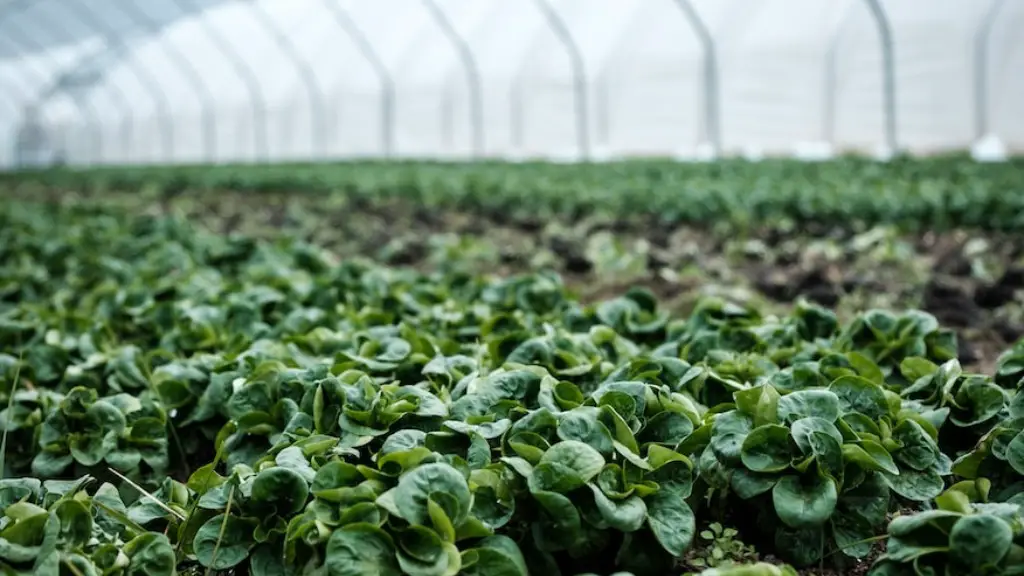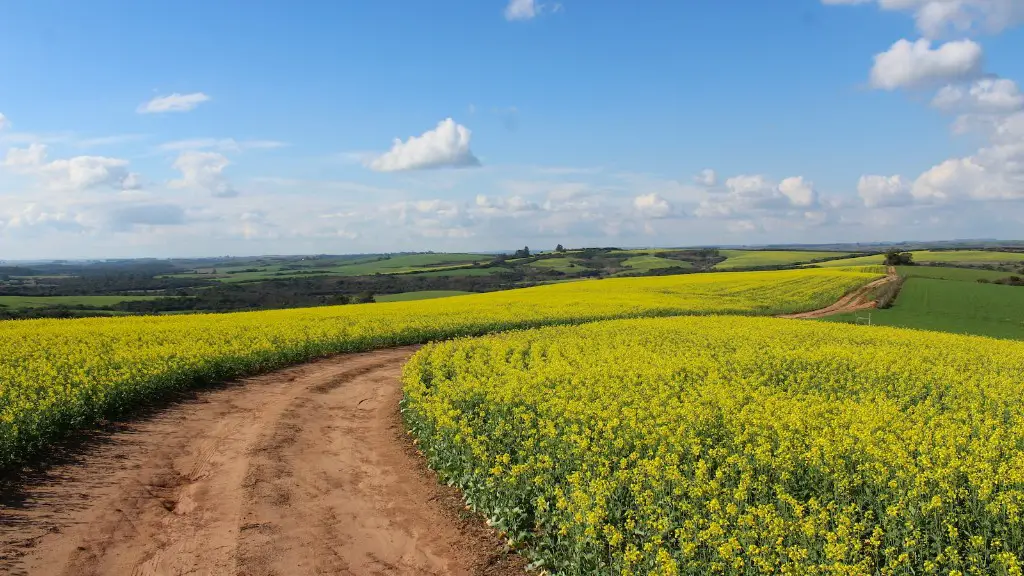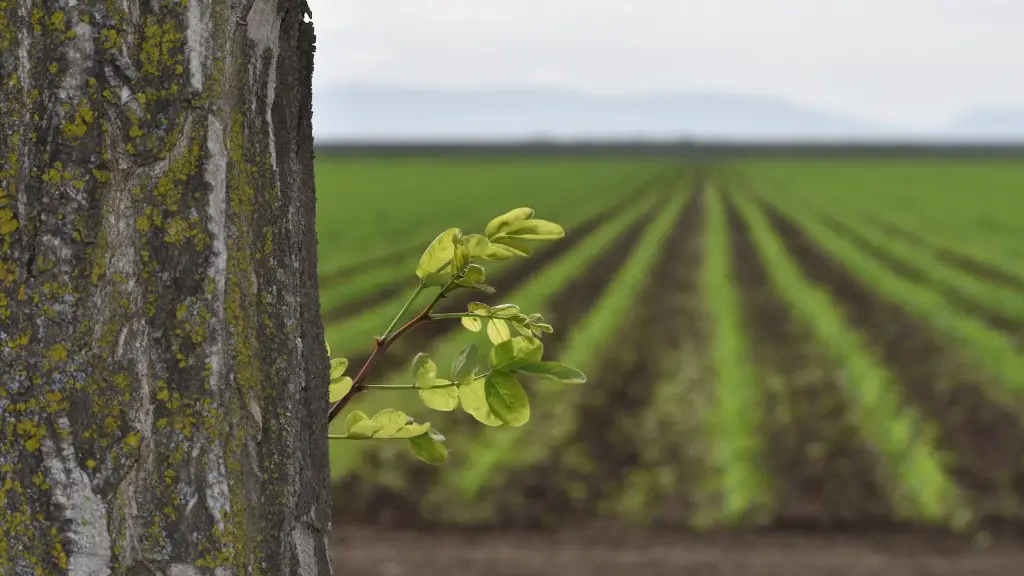Agriculture is a field of study that is crucial to the food supply of our planet and the livelihoods of millions of people. Agriculture is used to produce both food products and fiber-based items, such as cotton and wood. Through innovative methods of agricultural production and diverse career options, individuals can pursue careers in this flourishing industry. Here, we discuss some of the careers in agriculture that can offer fulfilling, meaningful opportunities for advancement and long-term career growth.
Farming is a classic and well-recognized career option within the agriculture industry. Many farmers are actively involved in the entire food production process, from planting and harvesting crops to managing livestock. They work throughout the year, monitoring production and maintaining the land, in addition to purchasing and applying fertilizers and other essential resources. Farming requires immense dedication, strength, and knowledge of both plants and animals, along with a strong management background.
Agricultural economists are responsible for researching and evaluating market trends, strategies, and pricing strategies within the agricultural sector. They must have a deep understanding of financial principles and agriculture-specific operations, economics, and industry trends. To succeed in this role, it is important to have a thorough understanding of the global markets, as well as the local economies, and to be able to develop competitive pricing and marketing plans.
Agricultural scientists are responsible for researching and developing new growing methods, disease control strategies, herbicides, fertilizers, and feed supplements, as well as researching and developing new crops and food products. Agricultural scientists must have an extensive knowledge of the industry, and a keen eye for detail. They must be able to analyze data and conduct research in an ethical and efficient manner.
Agronomists work in the field of soil, plant, and crop management. These professionals are responsible for improving crop yields and managing pest and weed populations. Agronomists use a variety of tools, such as fertilizer and irrigation systems, to optimize soil condition, crop yields, and crop health. Agronomists must be highly knowledgeable in soil science and crop production.
Landscape architects are responsible for designing outdoor spaces, such as parks, public gardens, residential gardens, and farmhouses. They use the principles of horticulture, plant science, and landscape architecture to develop and maintain aesthetically pleasing outdoor spaces that are also practical and environmentally friendly. To succeed in this field, landscape architects must have an excellent knowledge of plant life, a keen eye for design, and a strong sense of environmentalism.
Animal scientists are responsible for improving the health and productivity of livestock. They must have a deep understanding of animal behavior, nutrition, genetics, and reproduction. Animal scientists are also responsible for developing new feeds and new animal-related products, as well as researching the effects of disease and the environment on animal health and growth.
Plant Breeding Careers
Plant breeders are responsible for developing new varieties of plants suitable for a variety of climates, soil types, and yield levels. Plant breeders must have a thorough understanding of plant genetics, ecology, and plant physiology. Plant breeders are highly specialized professionals whose work results in new varieties of plants that are resistant to pests and diseases, have higher yields, and are better suited for certain climates.
Plant breeders work closely with agricultural scientists and other professionals in researching, developing, and testing new varieties of plants. Their work requires extreme attention to detail, strong problem-solving skills, and a good knowledge of both biochemistry and crop production. Plant breeders must stay updated on the latest advances in genetics, biochemistry, and other related fields in order to successfully develop new varieties of plants.
In addition to plant breeders, there are a variety of other professionals working in the agriculture field. Agricultural engineers work on developing new machinery and equipment that can improve agricultural production and efficiency. Agricultural entomologists are responsible for studying and managing insect populations, while agricultural engineers are responsible for designing, building, and maintaining irrigation systems and other infrastructure.
Organic farmers are also becoming a popular profession, as they are committed to growing plants and animals without the use of synthetic fertilizers and pesticides. Organic farmers must follow all organic farming standards and must strive to maintain a healthy and sustainable environment while developing crops. This is a greatly rewarding job that requires dedication to the natural sciences and ecology.
Those interested in pursuing a career in agriculture must understand the various types of careers available, from farming and agricultural engineering to agronomy and plant breeding. With the right educational background and knowledge, individuals can find meaningful and rewarding careers in this ever-evolving field. With the right skill set, dedication, and motivation, anyone can have a fulfilling career in the agriculture industry.
Marketing and Sales Careers
Marketing and sales careers in the agriculture industry involve promoting and selling products from the farm to customers. Marketers must understand their target market and develop promotional strategies to increase their customer base. Marketers must also be able to effectively communicate and negotiate with clients in order to secure a sale.
Agricultural sales professionals are responsible for finding new clients, developing relationships with existing clients, and strengthening customer loyalty. Sales professionals must also be knowledgeable of industry trends and agricultural regulations in order to effectively match buyers and sellers. Sales professionals also need to be comfortable presenting product offerings via digital platforms.
Business management professionals are responsible for managing the day-to-day operations of farms and other agricultural businesses. These professionals must have an understanding of business management principles and practices. They must be able to devise strategies for increasing production and reducing costs, as well as managing personnel, resources, and equipment.
Business development professionals serve as liaisons between farmers and other stakeholders. They identify opportunities for growth and expansion, and develop plans and strategies to foster collaboration among stakeholders. These professionals must have excellent communication and organizational skills and must be able to build relationships with suppliers and customers.
Agriculture extension professionals work with farmers to introduce new or improved agricultural production technology and practices. Extension professionals must have an understanding of agricultural methods, crop and animal farming, and sustainable land management. They must also have the ability to work in multiple agricultural settings and the ability to effectively use new technologies to improve efficiency.
Biotechnology Careers
Biotechnology careers are closely linked to agricultural science and the development of new methods of growing crops and animals. These professionals must have a strong scientific background and extensive knowledge of biotechnology and genetics. Biotechnology professionals must have an understanding of plant biology, animal husbandry, and other biological sciences.
Biotechnology professionals are involved in a variety of activities, such as genetic engineering and gene editing. They work with other scientists to develop new plant and animal species, genetics technologies, and medicines. These professionals must be able to analyze data and develop new products and processes that are safe and effective.
Biotechnologists also help farmers by identifying new crop varieties and improving the efficiency of production. They are responsible for the research and development of tools, techniques, and new technologies that can be used to increase crop yields and improve agricultural operations. Biotechnologists must be able to work with a variety of individuals, including farmers, agronomists, and agricultural engineers.
In addition to biotechnology, careers in the agricultural sector include accounting, marketing, finance, and public policy. Professionals in these fields must develop and implement strategies to increase production and ensure the best outcomes for consumers and the environment. Professionals in these fields must be knowledgeable in the latest advances in technologies and have the ability to stay updated on industry trends and regulations.
Environmental Careers
Environmental careers in the agriculture industry involve working to protect the natural environment, promote sustainability, and ensure the safe use of farming practices. Environmental professionals must have a strong understanding of the natural environment and the challenges facing rural communities. They must also be knowledgeable of landscape ecology, soil science, pest management, and other agricultural-related sciences.Environmental professionals also work with farmers and other stakeholders on resource management strategies, such as water usage and soil conservation. They develop strategies and plans to reduce impact on the environment, such as reducing runoff and pollution. Environmental professionals must be experts in a variety of sciences and technologies, such as aquaculture, irrigation, and fertilization.
In addition to environmental professionals, agriculture requires scientists, engineers, and policy makers. Together, these professionals work to ensure the safe and efficient production of food products and support the economic and social health of rural communities.
Lastly, agriculture relies on education and outreach. Many individuals are involved in outreach and education programs to spread awareness and share the importance of protecting and preserving our environment and natural resources. These professionals must have an understanding of the issues facing agricultural communities and be able to communicate effectively with diverse audiences.





